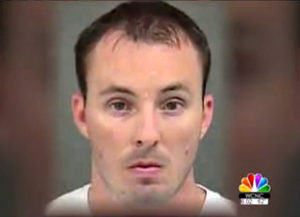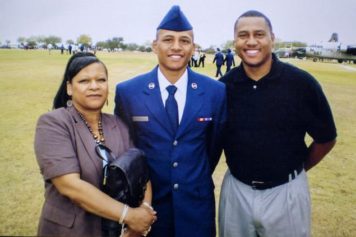After a partial grand jury last week failed to indict Charlotte police officer Randall Kerrick in the killing of Jonathan Ferrell, a full grand jury yesterday came to a different conclusion, issuing an indictment against Kerrick for voluntary manslaughter.
There was growing outrage across the country last week when the grand jury— missing four members—did not indict Kerrick who pumped 10 shots into Ferrell last Sept. 14 as the 24-year-old approached officers seeking help after he crashed his car.
A judge ruled that the district attorney could present the case again to the full grand jury and the indictment was handed down.
“There is a tremendous sense of relief for the family. We are very thankful that the grand jury carefully considered the evidence and returned the indictment,” said Charles Monnett III, an attorney for Ferrell’s family, said in a statement. “We will persevere in our quest for justice for not just Jonathan, but all law-abiding citizens. After all, what happened to him that night could happen to any of us.”
Kerrick, 28, who started out in the animal control division in 2010, was the first Charlotte-Mecklenburg police officer charged in a fatal shooting in more than 30 years.
Observers have speculated that the complete grand jury likely was shown video footage of the incident, taken from the patrol dashboard, showing Ferrell approaching officers with his hands outstretched. In the ensuing confusion, there are bullets and commands from the officers—insiders say it’s difficult to tell which comes first—and, according to one lawyer who has seen the video, there was little time for Ferrell to respond.
“In some of these cases of excessive force you can say, ‘Yeah, but he shouldn’t have been there in the first place’ or ‘He was doing something he shouldn’t have,’” said Monnett. “There is no ‘but’ in this case. It’s just a tragic case.”
“Those outraged have simply not heard all of the facts and hasten to a position,” said Kerrick’s lawyers, Michael J. Greene and George V. Laughrun II, in a statement. “The true outrage of this community should be at the attorney general’s complete disregard of the original findings of our first grand jury.”
Ferrell was working two retail jobs and had recently moved to Charlotte to join his fiancée and save money to go back to school. When the incident occurred shortly after 2 a.m., Ferrell was dropping off a work colleague in Bradfield Farm, a subdivision with tennis courts and a swimming pool, 17 miles east of downtown Charlotte.
On a dark road he drove down an embankment and damaged his car so badly that he had to kick out the rear window to free himself. He couldn’t find his cellphone, so he stumbled to the first house he found and knocked, according to the lawsuit the family filed against the city and according to police reports. Inside, a white woman, who was alone with her infant daughter called 911 and said a Black man was trying to break in.
When the three officers arrived 11 minutes later, according to Rodney Monroe, chief of the Charlotte-Mecklenburg police, Ferrell charged toward the officers and refused orders to stop. One officer fired a Taser, which missed its target. Then Kerrick fired the 12 shots, 10 of which hit Ferrell. The autopsy showed the bullets entered his body and traveled downward, which the family claims demonstrates Ferrell was already on his knees or lying on the ground when he was shot.
Officers then handcuffed him.



